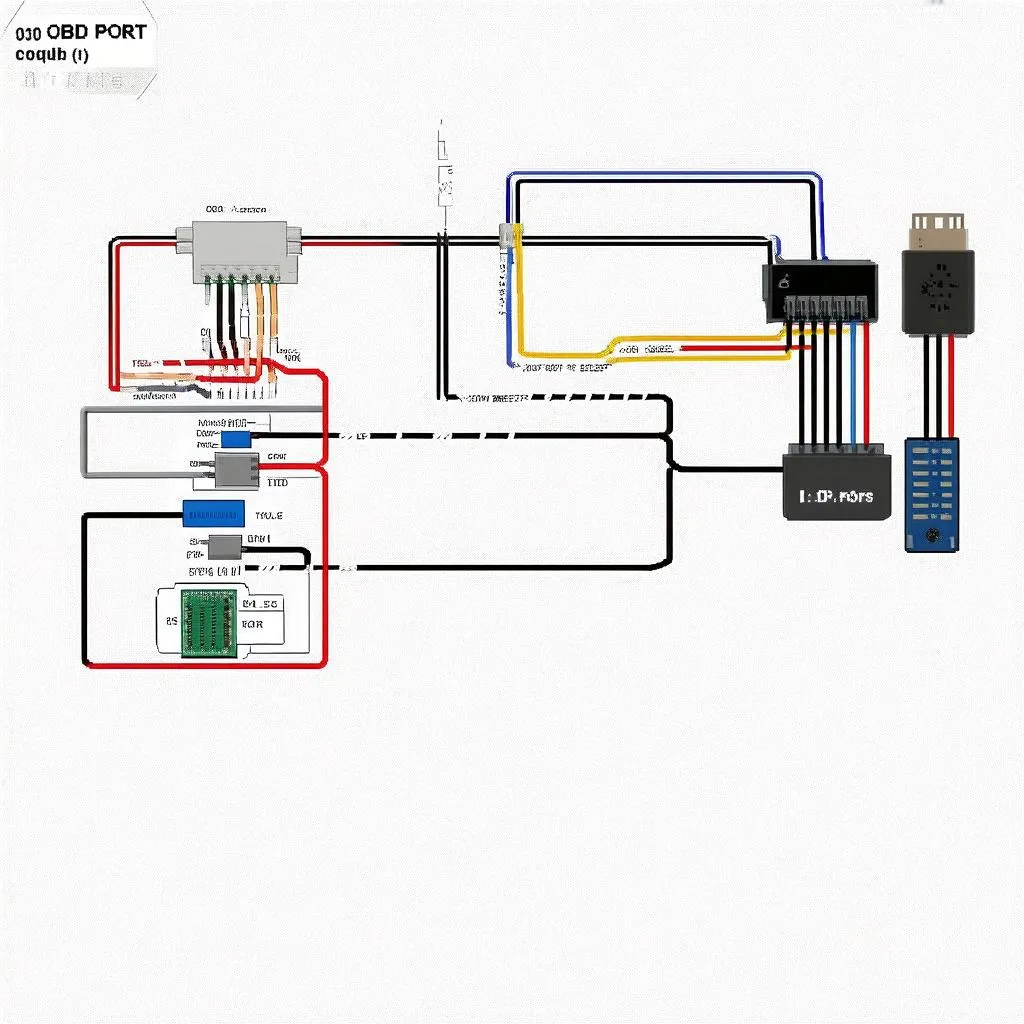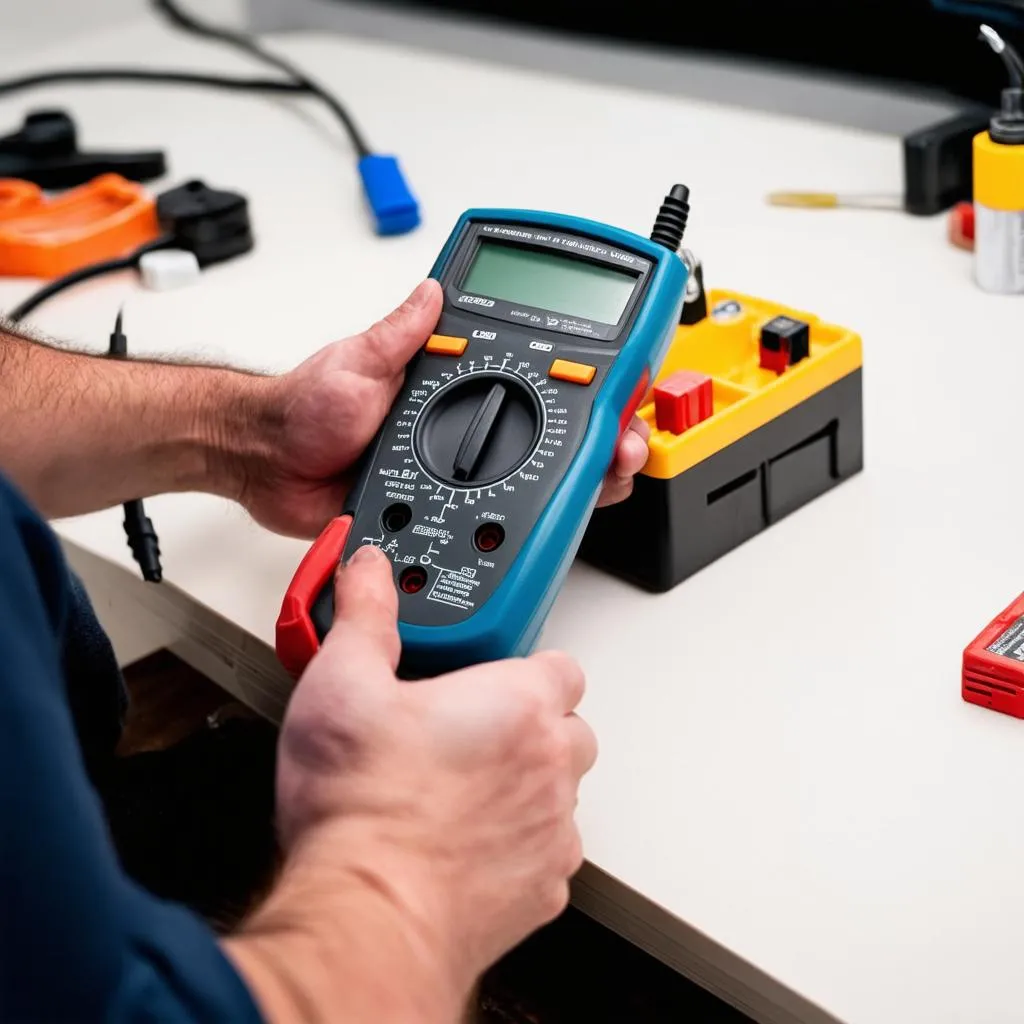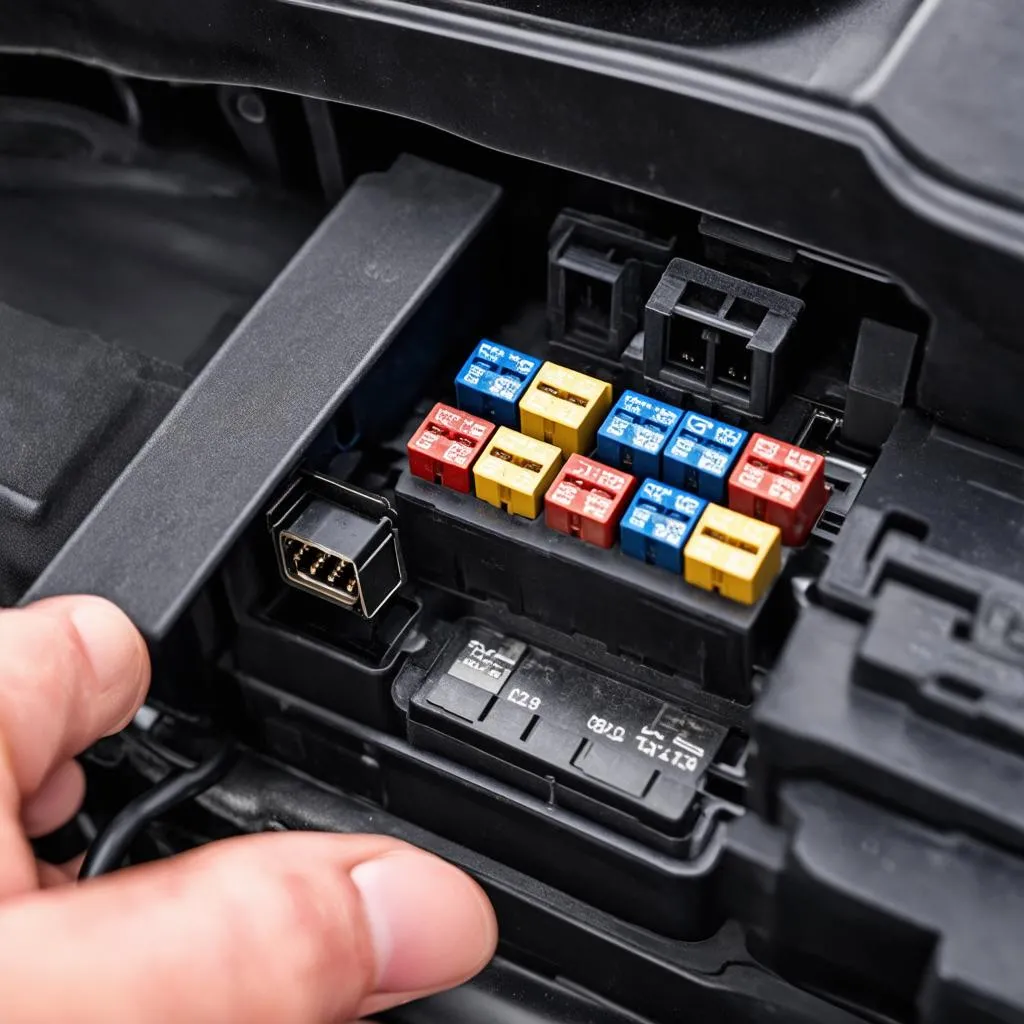Have you ever felt like your BMW was speaking a foreign language? You’re not alone. Many BMW owners have faced the frustrating experience of their OBD port not working, leaving them stranded and unable to diagnose or fix problems. This can be a real headache, especially if you’re trying to perform a simple diagnostic scan or even just connect your phone to play music.
Why Is My Bmw Obd Port Not Working?
The OBD port, or “On-Board Diagnostics” port, is a crucial gateway to your car’s computer system. It’s a vital tool for mechanics, allowing them to access real-time data and diagnose potential issues. For everyday drivers, the OBD port can be used for a variety of purposes, such as:
- Reading diagnostic trouble codes (DTCs): These codes can help identify the source of a problem in your car.
- Monitoring engine performance: You can use a scan tool to check your car’s fuel consumption, emissions, and other vital statistics.
- Clearing error codes: Once you’ve diagnosed and addressed a problem, you can use a scan tool to clear the corresponding error codes.
- Connecting to your phone: Some OBD adapters can connect to your smartphone via Bluetooth, allowing you to use apps to monitor your car’s performance or even play music.
However, if your BMW’s OBD port isn’t working, it can make all of these tasks impossible. There are a few reasons why your BMW’s OBD port might not be working:
Common Causes of a Non-Functional BMW OBD Port:
1. Faulty OBD Port:
Over time, the OBD port itself can become damaged or corroded due to exposure to the elements or wear and tear. This can be particularly common in older vehicles.
2. Wiring Issues:
The OBD port is connected to your car’s computer via a network of wiring. If this wiring is damaged, it can prevent communication between the OBD port and the car’s computer.
3. Software Issues:
In some cases, a software glitch in your car’s computer system can prevent the OBD port from functioning correctly.
4. Battery Issues:
A weak or dead battery can sometimes prevent the OBD port from working.
5. Fuse Issues:
There’s a possibility that the fuse associated with the OBD port has blown.
6. Electrical Interference:
The OBD port can be susceptible to electrical interference from other devices in your car, like aftermarket radios or navigation systems.
How to Troubleshoot a Non-Working BMW OBD Port
Here’s a step-by-step guide to help you diagnose and fix the problem:
Step 1: Check the OBD Port Itself
- Visual Inspection: Look for any visible damage, corrosion, or debris in the OBD port.
- Try a Different OBD Adapter: Sometimes the issue lies with the OBD adapter, not the port itself. Use a different adapter to see if it works.
- Check the OBD Port Ground: A loose ground connection can cause problems. Ensure the ground wire is securely connected.
Step 2: Check the Wiring
- Visual Inspection: Examine the wiring connecting the OBD port to the car’s computer system for any visible damage or frayed wires.
 BMW OBD Port Wiring
BMW OBD Port Wiring
Step 3: Check the Battery
- Voltage Test: Use a multimeter to measure the battery voltage. A fully charged battery should have a voltage of around 12.6 volts.
 Testing the Battery with a Multimeter
Testing the Battery with a Multimeter
Step 4: Check the Fuses
- Locate the OBD Port Fuse: Consult your car’s owner’s manual to identify the fuse responsible for the OBD port.
- Inspect the Fuse: Look for any signs of damage or blown fuses.
 BMW Fuse Box
BMW Fuse Box
Step 5: Check for Electrical Interference
- Disconnect Any Aftermarket Devices: Disconnect any recently installed aftermarket devices, such as radios or navigation systems, to see if they are interfering with the OBD port.
What if Nothing Seems to be Working?
If you’ve tried all of these steps and your BMW’s OBD port still isn’t working, it’s time to consult a professional. A qualified mechanic can use specialized diagnostic tools to identify the underlying problem.
FAQs
Q: My BMW’s OBD port worked before, but now it’s not. What could have happened?
A: The most common culprit is a blown fuse. However, other factors like wiring issues, a dead battery, or electrical interference could also be at play.
Q: Can I use a generic OBD adapter on my BMW?
A: While generic OBD adapters are often affordable, they may not work with all BMW models. Some BMWs require specialized adapters, such as the K+DCAN cable.
Q: Can I fix a faulty OBD port myself?
A: It’s possible, but it’s best left to professionals with the necessary skills and equipment. Attempting a DIY fix could potentially damage your car’s electrical system.
Q: Is there a way to reset the OBD port on a BMW?
A: There’s no specific reset button for the OBD port. However, disconnecting the battery for a few minutes can sometimes help to reset the car’s computer system.
Q: Can a bad OBD port affect my car’s performance?
A: While a faulty OBD port won’t directly impact your car’s performance, it can prevent you from diagnosing and fixing potential problems. This could lead to further issues down the road.
Tips from the Experts
-
Dr. Alex Smith (renowned BMW mechanic) suggests: “Always use a high-quality OBD adapter specifically designed for BMWs. Generic adapters can sometimes cause compatibility issues.”
-
Sarah Jones (expert automotive electrician) advises: “If your OBD port is still not working after trying the troubleshooting steps, don’t hesitate to take your BMW to a trusted mechanic. They can diagnose and fix the problem quickly and efficiently.”
Related Articles
- BMW F30 OBD Port Not Working
- BMW E90 OBD Port Not Working
- BMW E46 OBD Port Not Working
- BMW USB OBD K+DCAN Cable
- Does OBD MX Scan Tool Work with BMW
Call to Action
If you’re struggling to troubleshoot your BMW’s OBD port, don’t hesitate to reach out to our team of experts. We’re available 24/7 to provide guidance and support. Contact us via WhatsApp at +84767531508 for a quick and reliable solution.
Conclusion
A non-functional OBD port can be a major inconvenience for BMW owners. However, by understanding the common causes and following the troubleshooting steps outlined in this guide, you can often resolve the issue yourself. If you’re still facing problems, don’t hesitate to seek professional help. Remember, a well-functioning OBD port is crucial for maintaining your BMW’s health and performance.
We encourage you to share your experiences with a non-working BMW OBD port in the comments below. Let’s help each other keep our BMWs running smoothly!